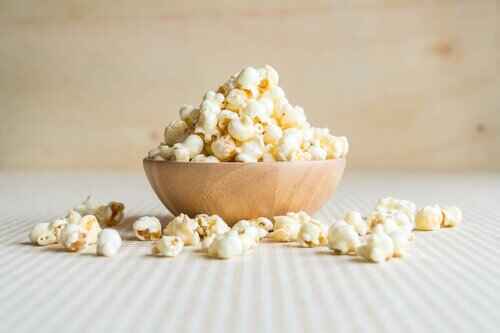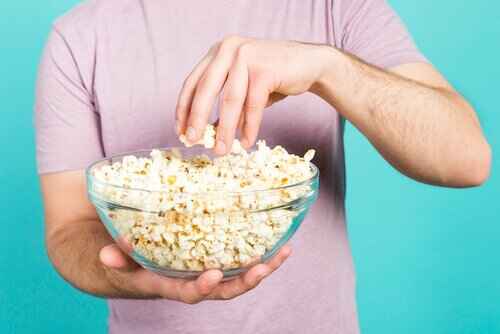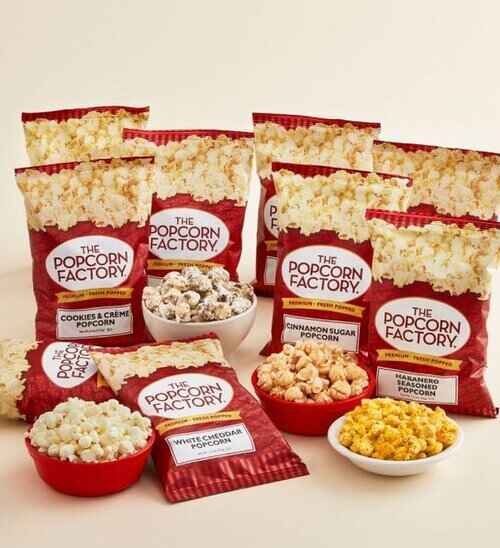
Apr 17 , 2024
Popcorn can be a healthy snack if prepared without added fat, salt, or sugar.
It is rich in fiber and essential nutrients, making it popular around the world.
However, if it's loaded with unhealthy toppings, it can become a calorie bomb. The main thing is to prepare it wisely.
The kidneys are two bean-shaped organs in your abdomen that filter your blood, remove waste, and balance fluids.
The kidneys filter about 200 quarts of fluid per day, removing waste and balancing electrolytes.
They help maintain your body's fluid balance and regulate electrolytes such as sodium and potassium.
Common waste products filtered by the kidneys include urea and creatinine.
The kidneys produce hormones such as erythropoietin and calcitriol and regulate blood pressure with renin.
The kidneys contain millions of filtering units called nephrons, which include glomeruli and renal tubules.
Glomeruli filter the blood, while renal tubules reabsorb nutrients and remove waste.
People with diabetes or high blood pressure are at highest risk for kidney problems.
The kidneys play an important role in filtering the blood, removing waste, and maintaining fluid balance in the body.

Popcorn is a unique type of corn that pops when heated. There is a little water inside each small grain.
When you heat it, the water expands, causing the kernel to pop and turn into puffy popcorn.
People have been enjoying popcorn for thousands of years, with the oldest piece found in New Mexico and dating back more than 5,000 years.
It became extremely popular during the Great Depression because it was affordable.
Nowadays, Americans eat approximately 1.2 billion pounds (500 million kilograms) of popcorn each year, making it the most favorite snack in the country.

Popcorn is actually a whole-grain food, meaning it's packed with essential nutrients that are good for you.
Studies show that eating whole grains may help reduce inflammation and reduce the risk of heart disease.
Nutrients you get from 100 grams of air-popped popcorn:
All that goodness comes with only 387 calories, 13 grams of protein, 78 grams of carbs, and 5 grams of fat.
Plus, it contains 15 grams of fiber, making it one of the best sources of fiber snacks.

Popcorn is a great option if you want to lose weight.
It is rich in fiber, low in calories, and has low energy density, making it a weight loss-friendly snack.
Compared to other snacks like potato chips, popcorn is a winner with only 31 calories per cup.
In fact, one study found that even a small amount of popcorn can make you feel as full as eating a lot of potato chips.
Therefore, eating popcorn can help you reduce calories and reach your weight loss goals.
Popcorn can be a healthy snack, but how it's prepared makes a big difference.
When it is cooked in the air, it has fewer calories.
However, some prepared types can be rich in calories.
For example, a medium-sized popcorn at a local store can contain 1,200 calories, even before adding the buttery toppings.
Popcorn from stores is often loaded with unhealthy fats, artificial flavors, sugar, and salt, which not only add calories but can also be harmful to your health in other ways.

While microwave popcorn is convenient and popular, it is important to be aware of the potential health concerns.
Most microwave bags contain a chemical called perfluorooctanoic acid (PFOA), which is linked to health problems like thyroid problems and ADHD.
Additionally, microwave popcorn may contain diacetyl, which can harm the lungs.
Some brands use hydrogenated oils, which may contain harmful trans fats.
Even though some brands claim to be free of these chemicals, making your own popcorn is a healthier option.
Polyphenols are like superheroes for our cells, fighting damage caused by free radicals. Surprisingly, popcorn is rich in these powerful antioxidants.
Research from 2019 found that popcorn contains a ton of polyphenols.
These antioxidants are linked to various benefits, like keeping our digestive system happy, improving blood flow, and reducing the risk of diseases like diabetes, and high blood pressure.
Additionally, some studies show that they may also help prevent certain types of cancer, such as prostate and breast cancer.
Popcorn is great when it comes to fiber, Fiber is extremely important for staying healthy and fighting diseases like type 2 diabetes, heart disease, and obesity.
It can also help you lose weight and keep your digestion healthy.
Most people don't get enough fiber, but eating 100 grams of popcorn gives you 15 grams of fiber.
This is a large portion of what you need to get through the day.
For the healthiest popcorn, making it on the stove or with an air-popper is the way to go.
Here is a simple recipe:
Material:
guidance:

Yes, popcorn is good for CKD patients and here is why:
Yes, dialysis patients can also enjoy popcorn but there are some things to keep in mind:
Here are some tips for dialysis patients enjoying popcorn:
Remember, consulting your doctor or a registered dietitian is crucial. They can personalize a kidney-friendly diet plan that incorporates popcorn while considering your specific needs and restrictions.
Popcorn can indeed be a kidney-friendly snack, provided you choose the right type and prepare it wisely. Let’s explore the details:
Remember, moderation is key. Enjoy your popcorn mindfully, and consult with your healthcare provider or dietitian for personalized advice!
Popcorn can be a good snack for a renal diet. Here's why popcorn can be a good choice for a renal diet:
Tips for enjoying popcorn on a renal diet:
Limit added fats by avoiding butter, oil, or cheese.
Summary
Popcorn can be a healthy snack choice when prepared in a nutritious way, which offers benefits such as being high in fiber, low in calories, and low on the glycemic index.
However, it's important to be mindful of how it is commercially prepared, as microwave popcorn and pre-packaged varieties may contain unhealthy additives like trans fats and high levels of sodium.
Additionally, it is important to understand kidney functions and care to maintain overall health and prevent kidney-related problems.
